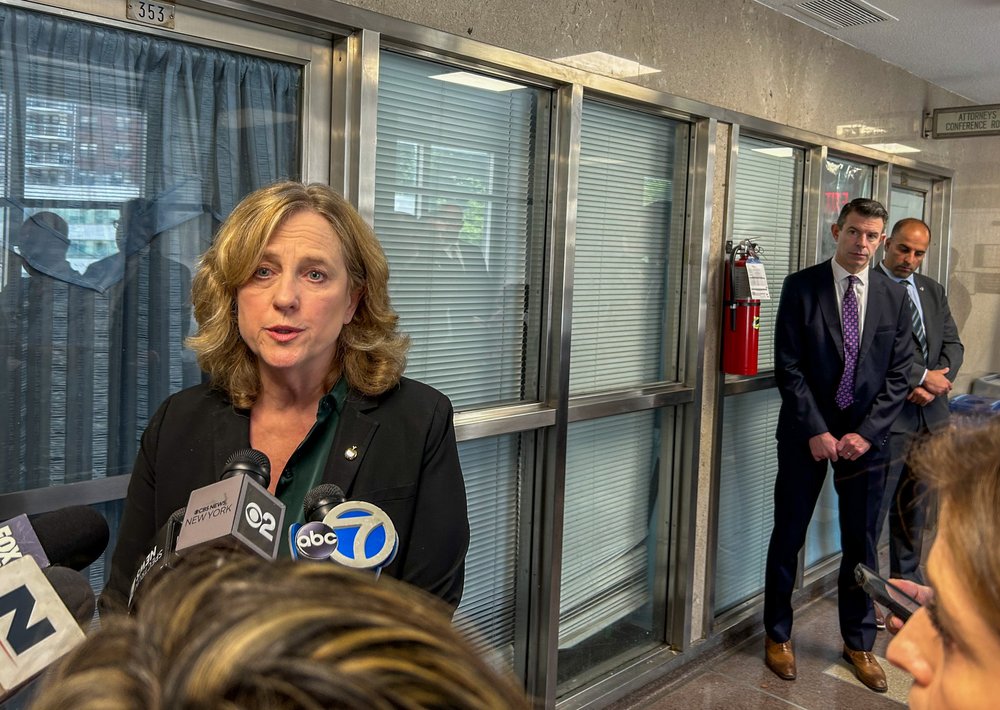Prosecutors charge 20 in $4.6M car theft ring that stretched across the US, Queens DA says
May 8, 2025, 4:46 p.m.
Prosecutors say the crew stole more than 120 cars from driveways and streets in New York and beyond — and resold them on Instagram, Facebook and Telegram.

Twenty people have been indicted in connection with a $4.6 million car theft ring that prosecutors said operated across the New York metro area and beyond, stealing everything from Hondas to Dodge Hellcats and reselling them through social media platforms including Facebook, Instagram and Telegram.
The charges follow a three-year investigation by the Queens district attorney’s office, the NYPD and New York state police, dubbed "Operation Hellcat." Prosecutors described the scheme as one of the most organized auto theft rings uncovered in New York City in the past decade.
The defendants were accused of stealing 126 cars from driveways and public streets, 44 of which were purchased by undercover officers, officials said. Fourteen of the defendants were charged with enterprise corruption, a felony that carries a maximum sentence of 25 years in prison.
“This is one of the most prolific and organized auto theft rings we have ever uncovered,” Queens District Attorney Melinda Katz said in a statement on Thursday. “With these indictments, we have dismantled a criminal enterprise that stole at least $4.6 million worth of vehicles from our streets and driveways.”
Investigators said the group operated as a criminal network made up of thieves, social media brokers and black-market dealers. The scheme initially relied on stealing unlocked cars with key fobs left inside but evolved into more sophisticated methods, including using tools to force entry and handheld devices to reprogram keys through a car’s onboard diagnostics system, officials said.
Prosecutors said the crew would disable tracking systems, remove Apple AirTags and use scouts to pinpoint desirable vehicles. Some cars were temporarily parked on public streets to test whether they were being tracked before being resold.
Defendants were accused of obscuring vehicle identification numbers, removing inspection stickers and using fake license plates to disguise stolen cars. Those arrested ranged from 23 to 46 years old, and all but two resided in New York.
The vehicles, which included 38 Acuras, 24 Hondas, 23 BMWs and 20 Dodges, were typically flipped quickly for $1,000 to $6,000 each, often below market value, officials said.
NYPD Commissioner Jessica Tisch said those affected by the auto theft ring were likely "everyday New Yorkers."
“It’s important to note: these were not high-end luxury cars," she said. "This crew targeted regular vehicles driven by everyday New Yorkers who relied on them to get to work, take their kids to school and just live their lives.”
Authorities said the cars were taken from across the region, including 52 in Queens, 25 in Brooklyn, 14 in Nassau County and 10 each in the Bronx and Westchester County. Others were stolen on Staten Island and in Manhattan, New Jersey and Massachusetts.
Three firearms, including a semiautomatic rifle, were also recovered in the operation.
Residents of New York City, Long Island and Tennessee were among those charged. At least 16 defendants have been taken into custody, while others are awaiting arraignment or have not yet been apprehended.
Remi Vaughn, a spokesperson for Telegram, said the platform takes multiple steps to prevent crimes and assist with law enforcement investigations.
"The sale of stolen goods including cars is explicitly forbidden by Telegram's terms of service and is removed whenever discovered," Vaughn said in a statement. "Moderators proactively monitor public parts of the platform and accept reports in order to remove millions of pieces of harmful content each day. In addition, Telegram can disclose the IP address and phone number of criminals who breach its terms of service in response to valid legal requests."
New York State Police Superintendent Steven G. James said the case underscored "the importance of long-term collaborative investigations in dismantling complex criminal enterprises."
This story has been updated with additional information.
Queens DA blames civil rights reforms for more than a quarter of cases being dismissed